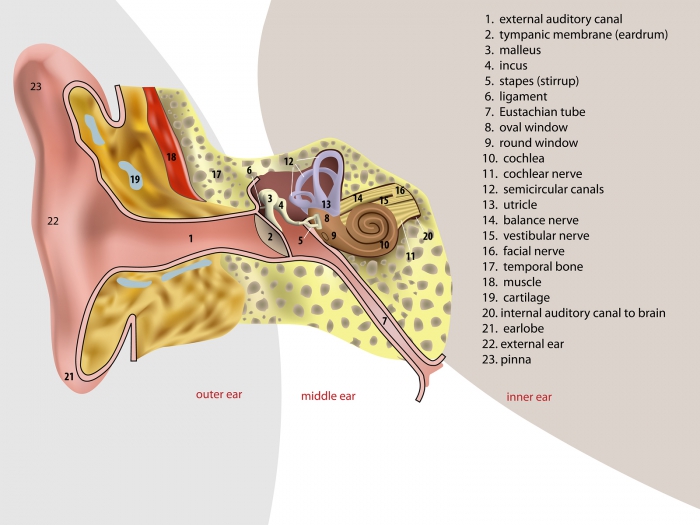Getting to the root cause of dizziness: how physiotherapy plays a role

Dizziness can be a sudden and often scary experience for many people. Often times dizziness can seemingly arise out of nowhere and leave a person feeling debilitated. While dizziness can be a sign of something serious, most often its origin is less sinister and stems from the inner ear organ.
Important to note - Red Flags: These would warrant immediate medical assessment and a visit to the emergency department
- Difficulty speaking/swallowing
- Vision changes such as double vision or blurry vision
- Loss of sensation to limb(s) or face (especially on one side)
- Confusion
In the absence of any of the Red Flags listed, a physiotherapist with access to Frenzel goggles (see video at the bottom of this page!) can help to determine the cause of dizziness. Using Frenzel goggles, the therapist can see an involuntary eye movement called nystagmus. The direction and nature of the nystagmus is what helps to determine the cause of the dizziness. Previous blog posts have discussed causes such as BPPV or Cervicogenic Dizziness. Today we will discuss Neuritis/Labyrinthitis or Acute Unilateral Vestibulopathy (AUVP) and how a Vestibular Physiotherapist can help.
Neuritis and Labyrinthitis
Neuritis is an inflammation of part of the vestibulocochlear nerve, where as Labyrinthitis is an inflammation of both branches of the vestibulocochlear nerve. While Neuritis and Labyrinthitis both cause vertigo, Labyrinthitis will also cause hearing loss.
The most common cause is usually an infection of some kind, either viral or bacterial. Examples of this could be an ear infection or some types of influenza. There are some case reports of onset of Neuritis following infection with COVID19, although there is no confirming evidence for this to date. Other causes of AUVP have been documented, such as following a Concussion.
Symptoms of neuritis most often start with severe, sudden and continuous vertigo lasting for 24-48 hours. Symptoms will gradually settle and become most obvious with head movements. A vestibular trained therapist will be able to differentiate AUVP from other causes (e.g. BPPV) by using special tests, such as the Horizontal Head Thrust and by observing for a specific pattern of nystagmus, using Frenzel Goggles. Treatment will then focus on progressive gaze stabilization and balance exercises done daily to help the patient return to their normal daily activities.
How to help with your dizziness diagnosis
Here are some important things to note down and bring with you to your first assessment, that can help your therapist diagnose the cause of your dizziness:
- Type/sensation of dizziness:
- True Vertigo - a sensation of spinning
- Light headed
- Wobbly
- Swaying
- Bouncing
- What is triggering the dizziness
- Straining to go to the bathroom or blow your nose
- Rolling over in bed
- Looking into a busy environment (e.g. Grocery shopping)
- Being in the dark
- Associated Symptoms
- Hearing loss
- Fullness in the ear
- Tinnitus
- GI upset
- Headache
- Neck Pain
- How long does the dizziness last?
- Seconds to minutes
- Hours
- Days
Each of these categories can assist with focusing in on your diagnosis.
In conclusion, physiotherapy plays a crucial role in helping individuals who experience dizziness. By using Frenzel goggles, a physiotherapist can identify the root cause of dizziness, whether it's Neuritis/Labyrinthitis or Acute Unilateral Vestibulopathy, and develop a personalized treatment plan. It's important to seek medical attention if the dizziness is accompanied by red flags such as difficulty speaking or swallowing, vision changes, loss of sensation, or confusion. Keeping a record of the type and duration of dizziness, trigger factors, and associated symptoms can also help a physiotherapist with the diagnosis. With the help of physiotherapy, individuals can regain their balance and return to their normal daily activities.
 Kristen realized her passion for rehabilitation after sustaining an ACL injury as a minor soccer player. As a result, she is able to appreciate first hand the effect therapy can have on recovery. Kristen received her Masters of Science in Physiotherapy in 2015 from the University of Alberta and her Bachelor of Kinesiology in 2012 from the University of Calgary. Kristen has worked in a variety of physiotherapy settings, but has a special interest in vestibular, concussion and orthopedic rehabilitation. Kristen has completed additional training in dizziness, balance, and concussion assessment/treatment and uses Frenzel goggles to assess advanced vestibular conditions. She has completed level II and III Upper for the Canadian Physiotherapy Association’s Diploma of Advanced Orthopaedic Manual and Manipulation courses. Kristen's treatment philosophy is to provide physiotherapy grounded in research and exercise to bring you the dedicated one on one approach you deserve. Outside the clinic Kristen enjoys curling, golfing and chasing her family around the playground.
Kristen realized her passion for rehabilitation after sustaining an ACL injury as a minor soccer player. As a result, she is able to appreciate first hand the effect therapy can have on recovery. Kristen received her Masters of Science in Physiotherapy in 2015 from the University of Alberta and her Bachelor of Kinesiology in 2012 from the University of Calgary. Kristen has worked in a variety of physiotherapy settings, but has a special interest in vestibular, concussion and orthopedic rehabilitation. Kristen has completed additional training in dizziness, balance, and concussion assessment/treatment and uses Frenzel goggles to assess advanced vestibular conditions. She has completed level II and III Upper for the Canadian Physiotherapy Association’s Diploma of Advanced Orthopaedic Manual and Manipulation courses. Kristen's treatment philosophy is to provide physiotherapy grounded in research and exercise to bring you the dedicated one on one approach you deserve. Outside the clinic Kristen enjoys curling, golfing and chasing her family around the playground.
View this post on Instagram

